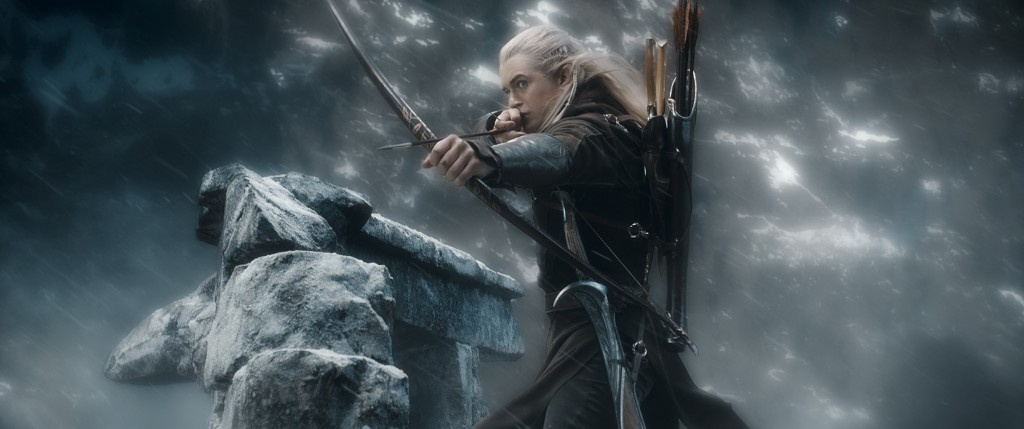ORLANDO BLOOM: No, we’re working off the “final” final. It’s an ever-evolving feast, and that’s just the way they work. Different creative people work in different ways.
They have a structure and then the flesh it out as they go, and I think things– It’s an ever-moveable feast and you have to be able to adapt to that. That’s part of their process. So, yeah.
 MEDIA: What do you as an actor respond better to? Obviously, you do some movies where you know exactly how many scenes you’re going to be in, you know exactly what your role is going to be every step of the way. Here, you’ve already admitted that you don’t know how much you’re going to be in. Do you like that uncertainty?
MEDIA: What do you as an actor respond better to? Obviously, you do some movies where you know exactly how many scenes you’re going to be in, you know exactly what your role is going to be every step of the way. Here, you’ve already admitted that you don’t know how much you’re going to be in. Do you like that uncertainty?
ORLANDO BLOOM: Of course, there’s a– As an actor, you give yourself over to a director and to a creative process of making a film, and you really don’t have any say in what ultimately makes it on screen. Because so much can end up– So much happens in the editing room that you really don’t have a say on it.
Of course, it’s great to have a script that is locked in and stuff, but equally, it’s great to know that there’s a team of people constantly looking to improve it and make it better and working on getting the best story out of what is there. So I’m kind of easy with it because I think you have to– Unless you want to direct.
I think some actors get to a place where we’re like, “I’m going to direct this,” because I want to see it the way I want to see it as opposed to– But if you’re signed up as an actor to do a piece, then you realize that the only bit that you control is the bit between “action” and “cut.” So that’s what you’re giving and there will be a version of that in the movie.
MEDIA: But how much is the trust? If someone else had been directing these movies, do you think that you would be approaching this all in the same way?
ORLANDO BLOOM: Obviously, I have a history with Pete and Fran and Phil, and there’s a trust there. And I know that Pete– I know that they all know and understand the world very well. And Pete’s always got– He’s always got a handle on every character. It’s interesting when you see the movies, each and every character has a moment, or a series of moments depending on how important they are to the story, but every character has a moment.
I think he has a real handle on what those characters are and what they need and how to connect those and how they will play through. That’s my take on it. Certainly in Rings, he knew exactly who Aragorn was and what that character– He knew exactly what Gandalf’s role– Frodo. And he knew who Legolas was.
So I had those moments, running on the snow, which is of course in the book, or the Mumakil or whatever. He had those things because he understood who the characters are and what they need. So there’s a lot of trust, I feel. I put a lot of faith in them, and I have a lot of trust that the end result will be one that we’ll all be happy with, but more importantly, an audience will be happy with, hopefully for many, many years to come.
MEDIA: How, if at all, is Legolas different? Obviously, this is set before The Lord of the Rings. Is he bringing anything different?
MEDIA: (overlaps) Ten years older. Yet sixty years younger.
MEDIA: (overlaps) Are you bringing anything different to the character?



